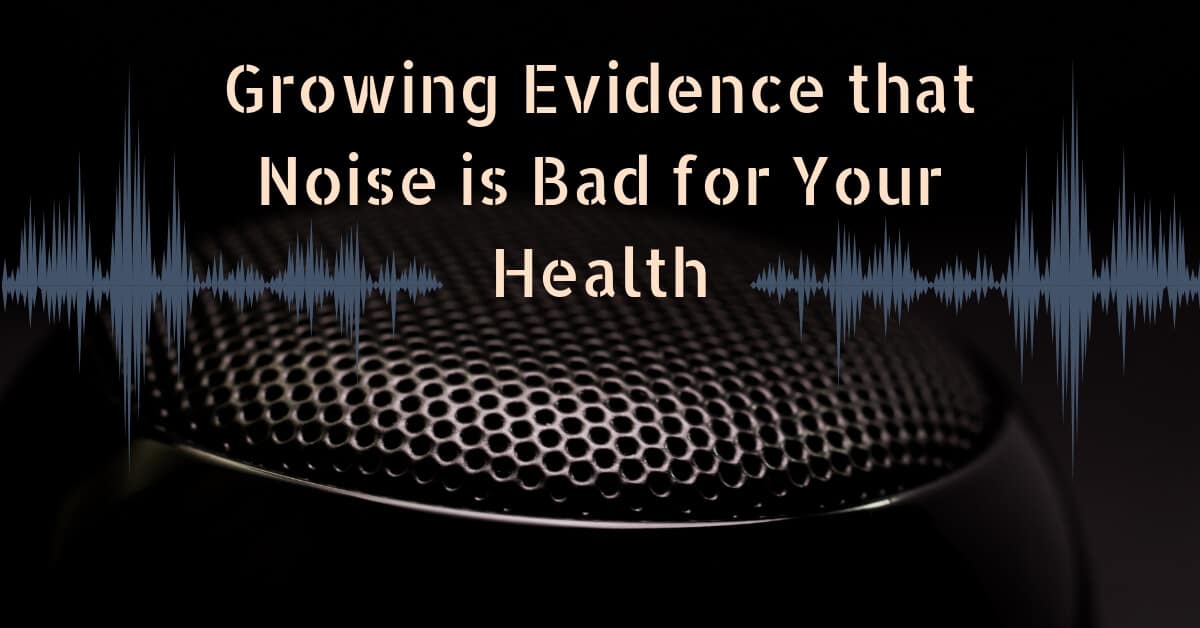Car alarms, train whistles, construction and traffic noise, the rumble of planes overhead – everyday noise can be annoying, but growing evidence indicates that it may be harmful to your health as well. The World Health Organization has just released noise guidelines to cap noise levels in a number of categories to protect individuals from noisy environments.
It’s Noisy Out There
As cities grow and spread out, construction noise becomes an everyday background to your commute. Although we don’t consider social situations as noise pollution, there’s plenty of noise at outdoor sporting events, outdoor markets, parties, clubs, restaurants and malls. From various notification beeps, chimes and dings of our electronic devices to what seems like perennial thud of construction equipment, we experience a lot of different noises as we make our way through the day. While we’ve grown used to a lot of these environmental sounds, consistent exposure to loud noises should not be overlooked and is being referred to by researchers as an urban plague.
In Europe, guidelines have been established to cap outdoor noise levels for traffic, aircraft, trains, wind turbines, and social or leisure noise. Studies indicate that we should be aware of the amount of noise we subject ourselves to in our own homes. We are surrounded by gadgets that make noise, from blenders to vacuum cleaners to lawn mowers, washers, TVs, the radio, the refrigerator and the air conditioner. Without even knowing it, these noises could affect our physical and emotional well-being.
Health Issues and Noise Exposure
Every sound we experience is processed by delicate hair cells located in the inner ear. More than 10,000 of these tiny hair cells convert every noise to an electrical signal. These signals are then transmitted to the hearing centers in our brains. This process allows us to appreciate music, sound and, conversation. Prolonged exposure to noises over 85 decibels or higher has the potential to damage or destroy these inner ear cells. Unfortunately, they do not regenerate, which could lead to permanent hearing loss.
If you come home from loud concert or from work in a noisy environment with muffled hearing or a ringing in your ears, this gives you an idea of the effect of noise on our hearing. While this does not indicate a hearing loss, it does illustrate the dangers of exposure to loud noise. Exposure to loud noise could affect your ability to hear high-frequency sounds. Since most of the consonants we speak in the English language require high frequency hearing to understand, this damage could impact your ability to understand conversations, especially with children’s voices.
Other Health Issues Tied to Noise Exposure
Health issues tied to noise include coronary heart disease, high blood pressure, elevated stress levels, sleep disturbances, and learning and hearing impairment in children. Noise pollution has also been linked to mental health problems including a general deterioration in the quality of life, metabolic issues including diabetes, adverse birth outcomes and obesity.
Even while you are sleeping, it has been found that noise affects you. We all know someone who says they can sleep through anything and they don’t mind traffic noise outside their windows. Studies have shown that your brain continues to process sound while you sleep (this is why alarm clocks are so effective!). Traffic issues outside your window can trigger your body to start producing cortisol, a stress hormone. This could lead to elevated stress levels, anxiety disorders, high blood pressure, and an elevated heart rate.
Protect Your Hearing
To protect your hearing, make it a habit to use protective gear when you are using power tools, mowing the lawn, or attending live sporting events or concerts. It’s never too early to start protecting your hearing! Make sure your children practice safe listening by keeping volumes on their electronic devices below 60% volume. If you’ve been exposed to noise for a long period of time, step away to a quieter place and give your hearing a break. Foam or silicone earplugs from your local pharmacy are better than nothing, but if you spend a lot of time in noise, consider investing in custom hearing protection, made from molds of your ear canals to provide a snug fit.
Visit Us at Lifestyle Hearing Solutions
Are you concerned about your hearing abilities? An annual hearing test ensures that you are on top of your hearing health. Give us a call at Lifestyle Hearing Solutions today and make an appointment.

